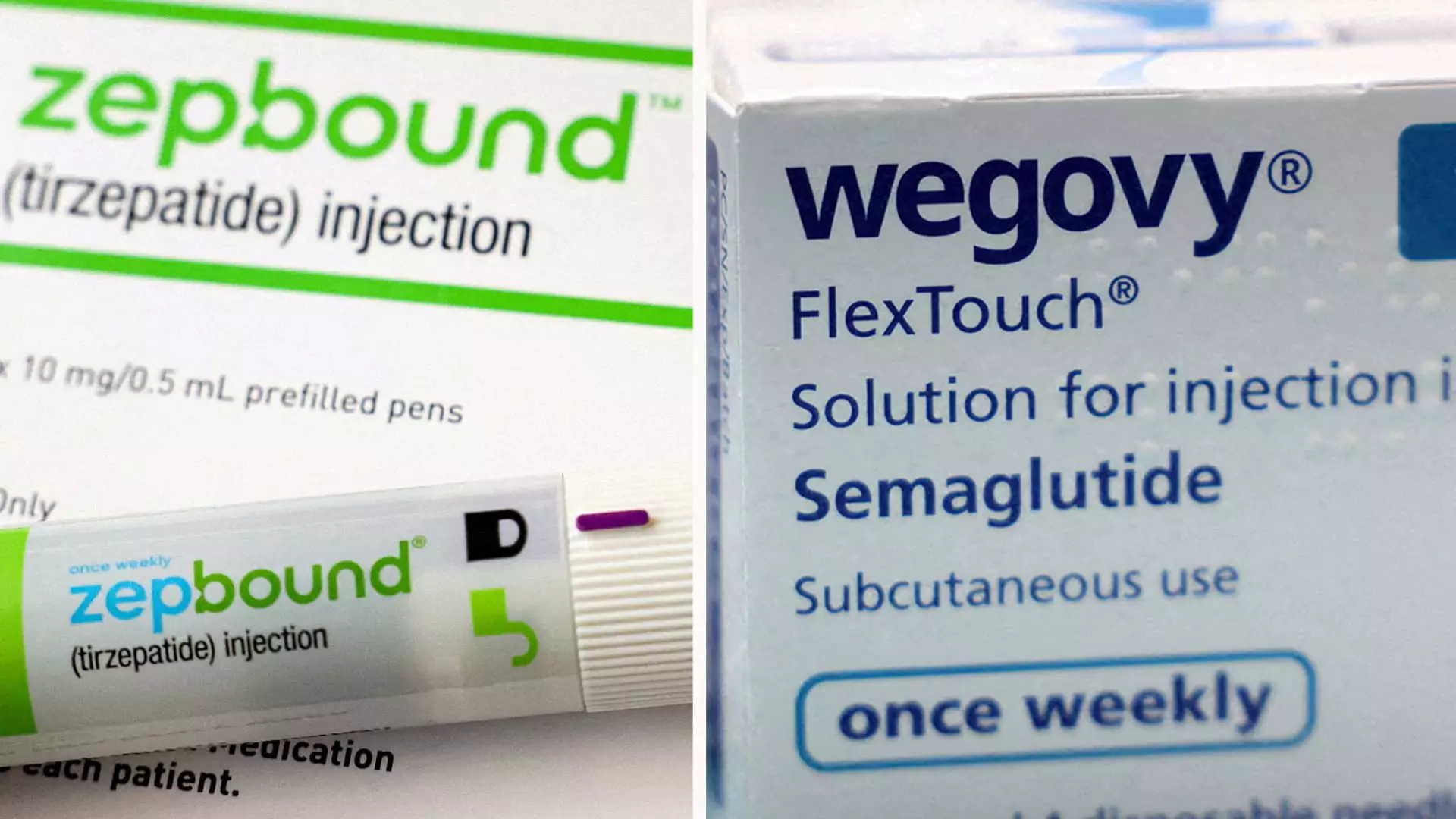Eli Lilly has made headlines with its recent announcement regarding the efficacy of its obesity treatment, Zepbound, which was revealed to outperform its principal competitor, Wegovy, developed by Novo Nordisk. This development comes from the first comprehensive head-to-head clinical trial comparing the effectiveness of these two weight-loss injections. As the public increasingly turns to medical solutions for weight management, these findings have considerable implications for healthcare providers and patients alike.
A Closer Look at the Clinical Findings
The Phase Three clinical trial encompassing Zepbound involved a cohort of 751 participants, all of whom were either obese or overweight with at least one weight-related health issue. After 72 weeks of treatment, results indicated an impressive average weight loss of 20.2%, which translates to roughly 50 pounds per patient. In contrast, Wegovy facilitated an average weight loss of 13.7%, equating to approximately 33 pounds over the same duration. These figures are pivotal as they underscore Zepbound’s potential to provide a significantly better option for those struggling with obesity.
Moreover, the results also highlight a notable disparity in the percentage of patients achieving substantial weight loss. Over 31% of those treated with Zepbound managed to shed at least a quarter of their body weight, emphasizing the drug’s efficacy. This is starkly different from the 16% of Wegovy users who attained similar results. Such statistics suggest that Zepbound may not only assist patients in losing weight but could also catalyze broader lifestyle changes, potentially leading to long-term health benefits.
The initial findings from Eli Lilly are complemented by other independent studies that have explored the performance of the two medications. A late-stage analysis showed that Zepbound facilitated weight loss exceeding 22%, further solidifying its superior position in the market compared to Wegovy’s 15%. The consistency across different studies reinforces the notion that Zepbound is establishing itself as a formidable player in the weight loss drug landscape.
Dr. Leonard Glass, Eli Lilly’s senior vice president of global medical affairs in Cardiometabolic Health, articulated the significance of conducting such comparative studies. The goal is clear: to empower healthcare providers and patients to make informed clinical decisions concerning treatment options. As the reality of obesity continues to escalate globally, clinical validation of such medications is more critical than ever.
Given the ballooning demand for effective obesity treatments, which some analysts predict may soar to a market worth $150 billion annually by the early 2030s, Eli Lilly’s new findings present both a major opportunity and challenge. The company seeks to carve out a substantial market share by positioning Zepbound as the leading weight loss medication. Analysts notably see Zepbound potentially emerging as the top-selling drug of all time, projecting annual sales could reach $27.2 billion by 2030.
In contrast, Wegovy, while still a strong competitor, is expected to generate $18.7 billion in annual revenue by the same timeline. Such projections highlight the importance of continuous innovation and market responsiveness in an environment marked by skyrocketing demand and ongoing supply chain challenges.
Access and Availability: Addressing the Drug Shortage
Despite the promising efficacy and forecasted market growth, patients still face significant hurdles in accessing these treatments. The cash price for both Zepbound and Wegovy hovers around $1,000 monthly, leading to issues with affordability, particularly in the United States where insurance coverage for obesity treatments is sporadic at best. Recent supply shortages prompted both Eli Lilly and Novo Nordisk to invest heavily in expanding their manufacturing capabilities. Thankfully, the Food and Drug Administration has reported that the supply for these treatments is now stabilized, but continued efforts are necessary to ensure consistent access for patients.
Mechanisms of Action: Understanding Drug Differences
A key aspect that delineates these two medications lies in their mechanisms of action. Zepbound operates by inhibiting appetite and regulating blood sugar levels through the activation of two gut hormones—GIP and GLP-1. On the other hand, Wegovy focuses solely on the GLP-1 pathway. This distinction may influence how each drug aids in metabolic processes and ultimately shapes patient outcomes.
As the landscape surrounding obesity treatments evolves, researchers and healthcare professionals are navigating a spectrum of options to better meet the needs of diverse patient populations. The potential of Zepbound, as indicated by recent study results, could very well transform the conversation around obesity treatment, ushering in new expectations and hopes for affected individuals.


Leave a Reply